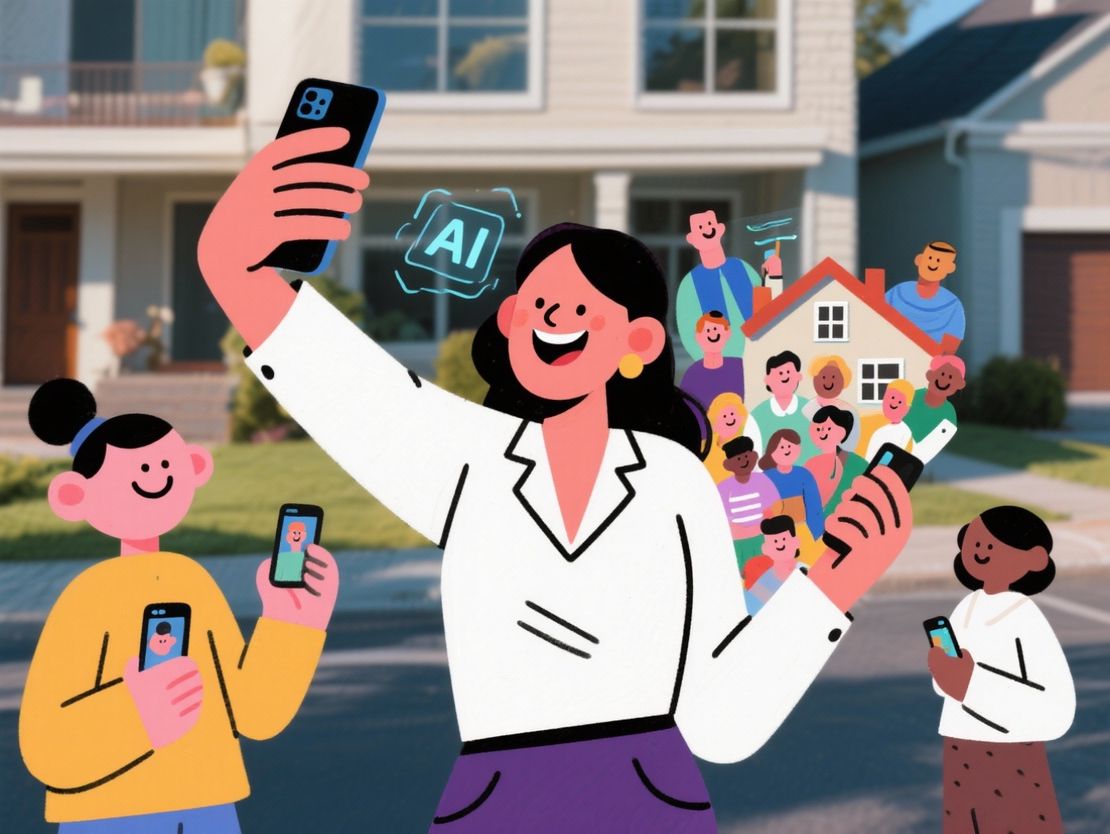You’ve built a successful consulting practice, coaching business, or real estate portfolio. Your client base is growing, and you’re consistently missing calls while serving existing clients. The obvious solution seems simple: hire a receptionist.
But before you post that job listing, let’s examine the real numbers. The total cost of human staff versus AI voice agents reveals a stark reality that most business owners don’t fully understand until they’ve experienced both options.
Today, we’ll break down every cost, hidden expense, and operational reality of human receptionists versus AI voice agents—giving you the complete financial picture to make the best decision for your premium service business.
The True Cost of Human Receptionists
Let’s imagine Rachel, a successful business consultant who decided to hire a part-time receptionist to handle her growing call volume. She thought she understood the costs, but the reality proved far more expensive than anticipated.
Direct Compensation Costs
- Base salary: Even part-time receptionists require competitive wages
- Benefits: Health insurance, retirement contributions, paid time off
- Payroll taxes: Employer portions of social security, unemployment, workers’ compensation
- Bonuses and raises: Annual increases and performance incentives
Hidden Operational Costs
- Recruitment expenses: Job postings, interviewing time, background checks
- Training investment: 2-4 weeks of intensive phone handling and system training
- Equipment and workspace: Desk, chair, computer, phone system, software licenses
- Management overhead: Daily supervision, performance reviews, HR administration
The Availability Problem
Rachel quickly discovered her biggest challenge: human limitations.
- Sick days: Average 6-8 days annually, plus unexpected illness
- Vacation time: 2-3 weeks annually when coverage is needed
- Personal emergencies: Family situations, appointments, life events
- Limited hours: Part-time staff typically work 20-30 hours weekly
Rachel’s reality check: Her receptionist was unavailable approximately 25% of scheduled time, and completely unavailable during evenings, weekends, and holidays—exactly when many of her high-value prospects were calling.
The AI Voice Agent Alternative
Consider Marcus, a real estate agent who chose AI voice agents instead of human staff. His experience reveals a dramatically different cost structure and operational reality.
Predictable Monthly Investment
- Fixed monthly fee: Transparent, predictable pricing with no surprises
- No additional costs: No benefits, taxes, equipment, or management overhead
- Scalable pricing: Costs that adjust with business growth, not fixed regardless of usage
Operational Advantages
- 100% availability: 24/7/365 operation without breaks, sick days, or vacations
- Instant deployment: Operational within days, not weeks of training
- Zero management: No supervision, performance reviews, or HR issues
- Consistent quality: Same professional service level on every call
Marcus’s results: Complete call coverage at a fraction of human staff costs, with superior availability and consistency.
Year-One Cost Comparison
Here’s what the first year actually costs for each option:
Human Receptionist
- Direct compensation: Salary plus benefits package
- Payroll taxes and fees: Employer tax obligations
- Recruitment and training: Initial setup and onboarding costs
- Equipment and setup: Workspace, technology, software access
- Management time: Owner time spent on supervision and administration
- Coverage gaps: Lost opportunities during unavailable periods
Total Year-One Investment: Substantial five-figure commitment with ongoing increases
AI Voice Agent
- Monthly service fee: Predictable monthly investment
- Setup and training: One-time configuration and business-specific training
- Integration costs: Minimal setup for calendar and CRM connections
Total Year-One Investment: Typically 70-80% less than human staff
Beyond Direct Costs: The Hidden Expenses
Human Staff Hidden Costs
Turnover Reality: Average receptionist turnover is 50-75% annually
- Recruitment costs: Repeated hiring expenses every 12-18 months
- Training investment loss: Previous training becomes worthless with departures
- Knowledge gaps: New staff require weeks to understand your business
- Client relationship disruption: Clients must rebuild rapport with new staff
Performance Variability: Human inconsistency creates business risk
- Mood and energy fluctuations: Bad days affect client interactions
- Skill level variations: Not every hire has identical phone skills
- Personal distractions: Personal problems can impact work quality
- Call handling differences: Inconsistent lead qualification and information gathering
AI Voice Agent Advantages
Consistency and Reliability:
- Identical performance: Every call handled with same professional quality
- Continuous availability: Never tired, distracted, or having personal issues
- Instant updates: Business changes implemented immediately across all calls
- Perfect memory: Never forgets client information or business details
Scalability Benefits:
- Volume flexibility: Handles 1 call or 100 calls with identical quality
- Business growth accommodation: Scales seamlessly as your business expands
- Multi-location support: Can represent multiple offices or services simultaneously
- Language capabilities: Can be trained for multiple languages if needed
The Productivity Multiplication Effect
Human Receptionist Limitations
- Single call handling: Can only manage one conversation at a time
- Limited multitasking: Difficulty managing calls while handling other tasks
- Knowledge constraints: Limited by personal expertise and memory
- Training plateau: Skills improve slowly and have natural limits
AI Voice Agent Capabilities
- Simultaneous call management: Multiple conversations handled concurrently
- Perfect information access: Instant access to all business information
- Continuous learning: Improves automatically with every interaction
- Advanced capabilities: Lead scoring, appointment optimization, follow-up automation
The Professional Image Factor
Human Receptionist Challenges
- Training time: Weeks to learn your business terminology and processes
- Knowledge gaps: May provide incorrect information during learning period
- Personal style variations: Different communication approaches with each hire
- Professional development: Requires ongoing training to maintain standards
AI Voice Agent Benefits
- Instant expertise: Trained on your specific business from day one
- Professional consistency: Same polished interaction style every time
- Advanced capabilities: Can handle complex qualification questions immediately
- Brand representation: Perfectly represents your business values and approach
Making the Strategic Decision
Choose Human Receptionists When:
- Complex administrative tasks: Need someone for filing, scheduling coordination, client relationship management
- In-person presence required: Reception area needs staffing for walk-in clients
- Nuanced conversation needs: Require emotional intelligence for sensitive situations
- Budget allows for premium: Can afford the total cost of employment plus backup coverage
Choose AI Voice Agents When:
- Call coverage is priority: Need 100% availability for lead capture
- Cost efficiency matters: Want maximum ROI on reception investment
- Consistency is crucial: Require identical professional service every time
- Scalability is important: Business is growing and needs flexible solutions
Your Decision Framework
The choice between human receptionists and AI voice agents isn’t about replacing people—it’s about optimizing your business operations for maximum effectiveness and growth.
Ask yourself:
- What percentage of calls do you need answered? (AI wins for 100% coverage)
- How important is cost predictability? (AI wins for fixed monthly costs)
- Do you want to manage employees? (AI wins for zero management overhead)
- How quickly do you need a solution? (AI wins for immediate deployment)
The most successful professionals understand that every business decision should drive growth, efficiency, and profitability. AI voice agents deliver all three while human receptionists deliver only partial solutions at premium costs.
Your competitors are making this decision right now. Those who choose AI voice agents will capture more leads, reduce operational overhead, and scale more efficiently. Those who stick with traditional human-only approaches will continue facing coverage gaps, higher costs, and limited availability.
The technology exists today to revolutionize how you handle incoming calls. The only question is whether you’ll embrace the future of business communication or continue accepting the limitations of the past.
Which choice will drive your business forward?





